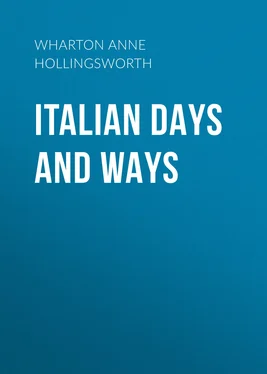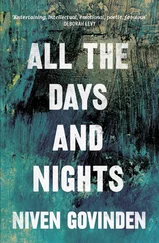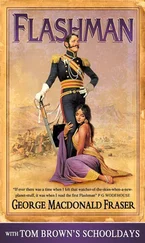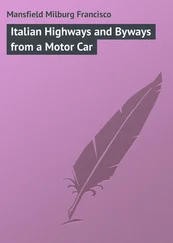Anne Wharton - Italian Days and Ways
Здесь есть возможность читать онлайн «Anne Wharton - Italian Days and Ways» — ознакомительный отрывок электронной книги совершенно бесплатно, а после прочтения отрывка купить полную версию. В некоторых случаях можно слушать аудио, скачать через торрент в формате fb2 и присутствует краткое содержание. Жанр: Путешествия и география, foreign_antique, foreign_prose, на английском языке. Описание произведения, (предисловие) а так же отзывы посетителей доступны на портале библиотеки ЛибКат.
- Название:Italian Days and Ways
- Автор:
- Жанр:
- Год:неизвестен
- ISBN:нет данных
- Рейтинг книги:4 / 5. Голосов: 1
-
Избранное:Добавить в избранное
- Отзывы:
-
Ваша оценка:
- 80
- 1
- 2
- 3
- 4
- 5
Italian Days and Ways: краткое содержание, описание и аннотация
Предлагаем к чтению аннотацию, описание, краткое содержание или предисловие (зависит от того, что написал сам автор книги «Italian Days and Ways»). Если вы не нашли необходимую информацию о книге — напишите в комментариях, мы постараемся отыскать её.
Italian Days and Ways — читать онлайн ознакомительный отрывок
Ниже представлен текст книги, разбитый по страницам. Система сохранения места последней прочитанной страницы, позволяет с удобством читать онлайн бесплатно книгу «Italian Days and Ways», без необходимости каждый раз заново искать на чём Вы остановились. Поставьте закладку, и сможете в любой момент перейти на страницу, на которой закончили чтение.
Интервал:
Закладка:
We have spent the morning at the National Museum, where are so many of the world-famous sculptures, the Hercules, a magnificent, strong figure in perfect repose, a giant taking his ease, and the Farnese Bull, both of them from the Baths of Caracalla in Rome, and a huge bronze horse from Herculaneum. Most impressive and interesting to us is the statue of Diana of the Ephesians, against whose worship Paul preached at Ephesus. A curious statue is this, odd enough to have fallen down from Jupiter, according to the tradition, or from any other heathen god! The torso is of fine, variegated marble, and the head, hands, and feet, the latter slender and delicate, are of bronze. This Diana is not a huntress, like the Greek Artemis with the crescent above her brow, but bears about her the symbols of abundance. We lingered long near this statue of the great goddess of the Ephesians, marvelling wherein lay the secret of her power. To Demetrius and the other silversmiths who made her shrines she was valuable, as she brought them great gain; but for beauty or grace there was no reason why this Diana should have been worshipped by "Asia and all the world."
Among the bronzes from Pompeii and Herculaneum we found the originals of many of the exquisitely graceful figures with which we are all familiar. We greeted as old friends the Dancing Faun, the Mercury, the Flying Victory, the Wrestlers, Silenus, the Boy with the Dolphin, and, above all, the lovely Narcissus, which they now call by another name. Zelphine and I have decided that we will never acknowledge this to be a Dionysus or anything less poetic than the Narcissus. This charming, youthful figure with the bent head and listening ear is quite small, not nearly life-size, and for that reason, perhaps, its beauty is more delicate and spiritual. If that little figure could speak, what could it not tell of pomp, luxury, love, and delight, all overtaken and overwhelmed by sudden destruction in the buried city where it was found!
Now, indeed, if it were in my power to rhyme four lines and make sense at the same time, which was my school-girl idea of poetry-making, I should certainly be sending you a poem about the Narcissus; but why cudgel my brains when Keats has, with his own sympathetic charm, told the pathetic story of the beautiful youth?—
"Who gazed into the stream's deep recess
And died of his own dear loveliness."
On our way home from the museum our vetturino beat his horse so unmercifully, although the poor nag was going as fast as a horse could be expected to go up hill, that Zelphine remonstrated with him, very tactfully, as I thought, paying his sorry Rosinante compliments and calling the wretched beast il buono cavallo . The idea of any one feeling compassion for a horse evidently touched the driver's sense of humor, and, regarding it as a huge joke, he laughed and whipped the poor animal still more unmercifully, making us understand, in the gibberish of French and Italian peculiar to the cabmen here, that there was no need to be merciful to a creature without a soul. We longed for greater facility in some language that he could understand, to inquire into his own spiritual condition. As, however, words were wanting, we fell to wondering wherein such a being as this differs from the beasts of the field. The cabmen of Naples would certainly afford our friend Dr. C. an additional argument in favor of his pet doctrine of conditional immortality.
Our driver's attitude toward the animal creation is, we are told, that of most Neapolitans. Even persons of more intelligence question the advisability of caring for the comfort of dumb creatures, yet these apparently cruel people have a most kindly custom. If parents lose a child, and children are generally so numerous that it seems as if one could scarcely be missed, they adopt an orphan, call it God's child, and treat it as their own.
March 6th.We have been wondering, ever since we came here, where the beauty and fashion of Naples are to be found, having seen on the streets only tradespeople and beggars. We put the question to our friend the concierge at the Hotel B. At five o'clock in the afternoon, he told us, the beau monde could be seen taking an airing on the Chiaia, never earlier. It seems that Neapolitans of quality do not drive while the sun is shining. You remember that old Italian proverb about only dogs and Englishmen liking the sun? To this I would add the wise peasants, with whom its genial warmth takes the place of food, fire, and proper clothing.
Five o'clock on a March afternoon is a rather chilly and uncomfortable hour for a drive; but we should have to go then or give up all idea of a fashionable promenade en voiture with the élite of Naples. This afternoon was the time arranged for our drive. A carrozza , a two-horse carriage, was to meet us at a favorite coral shop on the Chiaia, whose exquisite wares draw Angela daily with a glittering eye. Having arranged with Zelphine about this rendezvous, I left her hanging over some Pompeian statuettes in a shop on the Toledo, copies, of course, but very good ones, quite too tempting to be safely dallied with, and made my way to Thomas Cook's office and to several glove shops. When my commissions were finished, I had more than an hour on my hands, so I lingered for some time before the tall monument in the Square of the Martyrs, a memorial to the patriots who perished during several Neapolitan revolutions. This monument has much of the simplicity and strength of the Nelson memorial on Trafalgar Square, having like it four colossal bronze lions at the base. The noble shaft is surmounted by one of Caggiani's graceful figures, a Victory delicately poised as if on tiptoe for a flight.
After gazing long at the beautiful monument, I strolled down the Strada Chiaia to the esplanade with the statues and fountains, a charming place to walk on a cool afternoon. You know my fancy for wandering alone through strange streets and byways. On and on I sauntered, thinking that I might have time to walk as far as the Aquarium before keeping my tryst at the coral shop, and not fully realizing how deserted the place was until I heard a penetrating voice quite close to me speaking rapid and almost unintelligible French, accompanied by the cracking of a whip. "A cabman—I'll pay no attention to him," I said to myself; "he'll be discouraged after a while and leave me." I soon found that I had reckoned without my host: that vociferous, whip-cracking Jehu followed me, dogged my steps, offered me his cab at absurdly low rates, and finally cornered me in a recess of one of the large public buildings. I looked around; there was not a person in sight to help me, only a few beggars on the steps, who would naturally make common cause with the cabman. You will laugh at me, I am sure, but so terrified was I by the creature's language and gestures and whip-cracking that I abjectly stepped into his cab, telling him to drive me for an hour and set me down at the well-known coral shop on the Chiaia at five o'clock, showing him the time on my watch-face. Was I not just a bit like the woman who married a persistent suitor in order to get rid of him? Her troubles probably began then and there; mine certainly did. My cocher , with an irritating expression of triumph on his face, set forth upon a tour of sight-seeing which threatened to be of long duration. We passed from street to street, from building to building, until to my dismay I found that he was driving toward the upper town. I protested, knowing that there would not be time to get back to the Chiaia by five o'clock. Would I like to see San Martino? No, I answered, with decision, I had already been to San Martino; I wished to go back to the Chiaia. Then—for astuteness commend me to a Neapolitan vetturino —that irritating creature became suddenly deaf, dumb, and blind, while his horse went on and on up the heights toward San Martino. Fortunately, the road winds around the hill, and as we reached one of its windings I saw, by a sign, that we were on the Strada Vittorio Emanuele. Hope revived when I began to recognize familiar buildings; we would soon reach our hotel. "Hotel B.! Albergo B.!" I cried, with so much insistence and with gestures so like his own that the creature finally listened to me, the horse slackened its pace slightly, and then, oh joy! the Hotel B. appeared, the concierge at the door. I called to him, he made a peremptory sign to the driver to stop, and I was once again a free woman, standing on my two feet, with solid ground beneath them.
Читать дальшеИнтервал:
Закладка:
Похожие книги на «Italian Days and Ways»
Представляем Вашему вниманию похожие книги на «Italian Days and Ways» списком для выбора. Мы отобрали схожую по названию и смыслу литературу в надежде предоставить читателям больше вариантов отыскать новые, интересные, ещё непрочитанные произведения.
Обсуждение, отзывы о книге «Italian Days and Ways» и просто собственные мнения читателей. Оставьте ваши комментарии, напишите, что Вы думаете о произведении, его смысле или главных героях. Укажите что конкретно понравилось, а что нет, и почему Вы так считаете.












